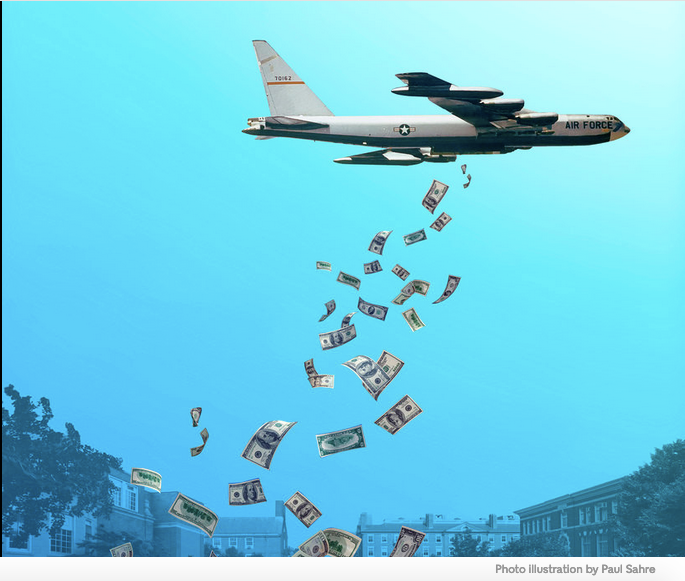ast year, the new Project on Grand Strategy, Security, and Statecraft quietly opened its doors in Cambridge, Mass. A joint venture between Harvard and the Massachusetts Institute of Technology, the program, thus far, has hosted only a modest level of activity, barely noticeable in the thrum of the Boston-area academic scene. Last year, the program supported two visiting scholars. This year, the number is up to four, all with specialties in some aspect of United States foreign relations.
If the program’s current scale may as yet be unremarkable, the ambitions of its founding donor are not. Created with $3.7 million in grants from the Charles Koch Foundation, the program is part of an expansive but little-noticed Koch-sponsored effort to influence American foreign policy by investing in the infrastructure of ideas: scholars, academic centers, Washington think tanks. So-called Koch money — the billions under the control of Charles and his brother David, who died in August — has already transformed countless other areas of American political life, from tax policy to environmental regulation to campaign finance, all in the service of a radically free-market vision that has made the Koch name an epithet among progressives.
When it comes to foreign policy, though, the agenda of the foundation — which supports education and research and constitutes a relatively small part of the Koch network — does not line up quite so neatly with partisan politics. In keeping with Charles Koch’s libertarian shrink-the-state imperative, the foundation has set out to bring an end to America’s age of endless wars and to reduce the nation’s military footprint around the world — a vision shared by many progressives, some of whom count themselves among the Koch grantees.




